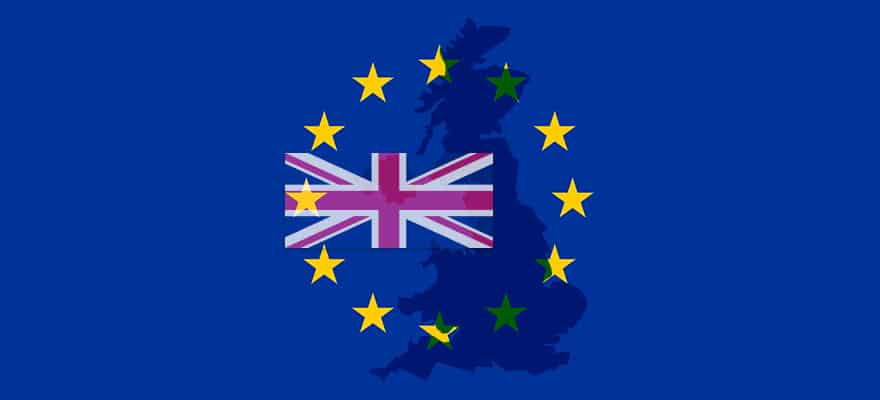International Monetary Fund (IMF) chief Christine Lagarde announced in Davos that confidence that the UK is staying in the EU will make world financial markets more stable. However, the anxiety based on Britain’s possible exit from the EU is another reason for Volatility in the financial markets according to Ms. Lagarde.
Test your knowledge, win a prize! Take the Finance Magnates quiz...
During the World Economic Forum, she offered to sign an important agreement guaranteeing that Britain will stay in the EU, which will be very beneficial for European and global economies. These suggestions came at the end of a turbulent week, which witnessed significant drops in world markets, partly influenced by the slowing economy of China and the ambiguity caused by a decrease in oil prices. Recently the FTSE index dropped to its lowest for more than three years, later recovering a bit.
The IMF chief said that Europe’s expectations for the economy improved in the last weeks and she predicts that the economy’s growth will be 3.4%, increasing from the 3.1% level last year. At the same time, Ms. Lagarde mentioned two big problems – the Brexit , and the possibility of a crash of the Schengen agreement over problems with refugees.
Citing recent calculations by the Office for Budget Responsibility, Rachel Reeves stated that the inability to find the balance for the British economy has brought even more risk. “We currently need surplus of about £5bn Q4 to reach the chancellor’s goal. If we fail to reach such figures, we will need budget cuts and growth in taxes or another drift in the plan of decreasing deficit – which was lengthened by five years.”
Reeves also mocked Osborne who announced in his November speech that better times are back. “Around two months passed since Osborne bragged in his interview about ‘enhancements in state’s finances’ which he used to avoid talking about topics on increasing taxed and telling instead that the UK is ‘ready for big challenges in the future’. It is strange how fast his statements became so conceited.”
Osborne, who was also at the World Economic Forum, said he was sure about the agreement regarding the EU. “There probably is goodwill with the other EU countries, and the EU organizations. Now we need to make it real,” he added.
If the UK Leaves the EU, It Could Collapse
At the World Economic Forum some European leaders suggested that a British exit from the EU could destroy the EU project itself. Such things are usually used to force people who are in favor of the Brexit to reconsider, but for others the effect is the opposite – they believe that this exit is a better opportunity than I believe it currently is.
The most crucial and also seemingly only decision to be made on economic issues in Britain in the immediate future is simply to stay in the European Union or not. It’s obvious that there are other important economic concerns. For instance, deciding which trade policy should be used. Currently Britain doesn’t have its own – it’s decided in the European Union. The same is true about simpler things - changing VAT rate for tampons? No, the British government doesn’t have the right to decrease its rate. Brussels makes the decisions in such cases.
Also, can the government influence regulation of the City, probably UK’s largest export industry? Here the European Union Parliament and Commission are also involved in the process. The UK can’t even decide on the balance of bankers’ salaries and bonuses. It’s strange that such decisions are made in another county.
There are a lot more proofs and examples that the UK can’t decide on many vital economic issues at the moment. Here the most appropriate question to ask is 'who, whom?' (historically asked by Vladimir Lenin). Another important question is who gets the right to make those decisions?
Despite not being a strong supporter of UK political officials, there could even be some correlation between the UK government’s actions and what the country’s population would really like to be done.
These factors bring us to today’s cautions:
The PM of France Manuel Valls has announced that the whole of Europe is in serious danger and the nations must cooperate in the defense sphere, adding that the Brexit can be a critical problem and a ‘tragedy’ as he put it.
Mr Valls argues that the EU structure is unsafe. "Europe can forfeit its history and the whole EU can quickly collapse. This can happen in a few months," he warned in Davos.
Wolfgang Schauble, finance minister of Germany, encouraged UK citizens to vote for staying in the EU at the referendum. "Otherwise it can be a complete disaster," he added.
Germany’s officials are worried that the Brexit could affect the balance of power in the European Union, leaving Germany with apparent leadership that could damage its partnership with France.
It’s not easy to stay neutral with such questions while, for example, the UK Independence Party and some other parties suggest that the UK should actually withdraw from the EU. On the other hand, the EU as a single market gives an opportunity for British people to move to other countries within the union or just work there. However they still have such opportunities without staying in the EU, just like Norway or Switzerland for example. And basically this is the main reason which attracts Europe and the EU to the people of the United Kingdom.






















